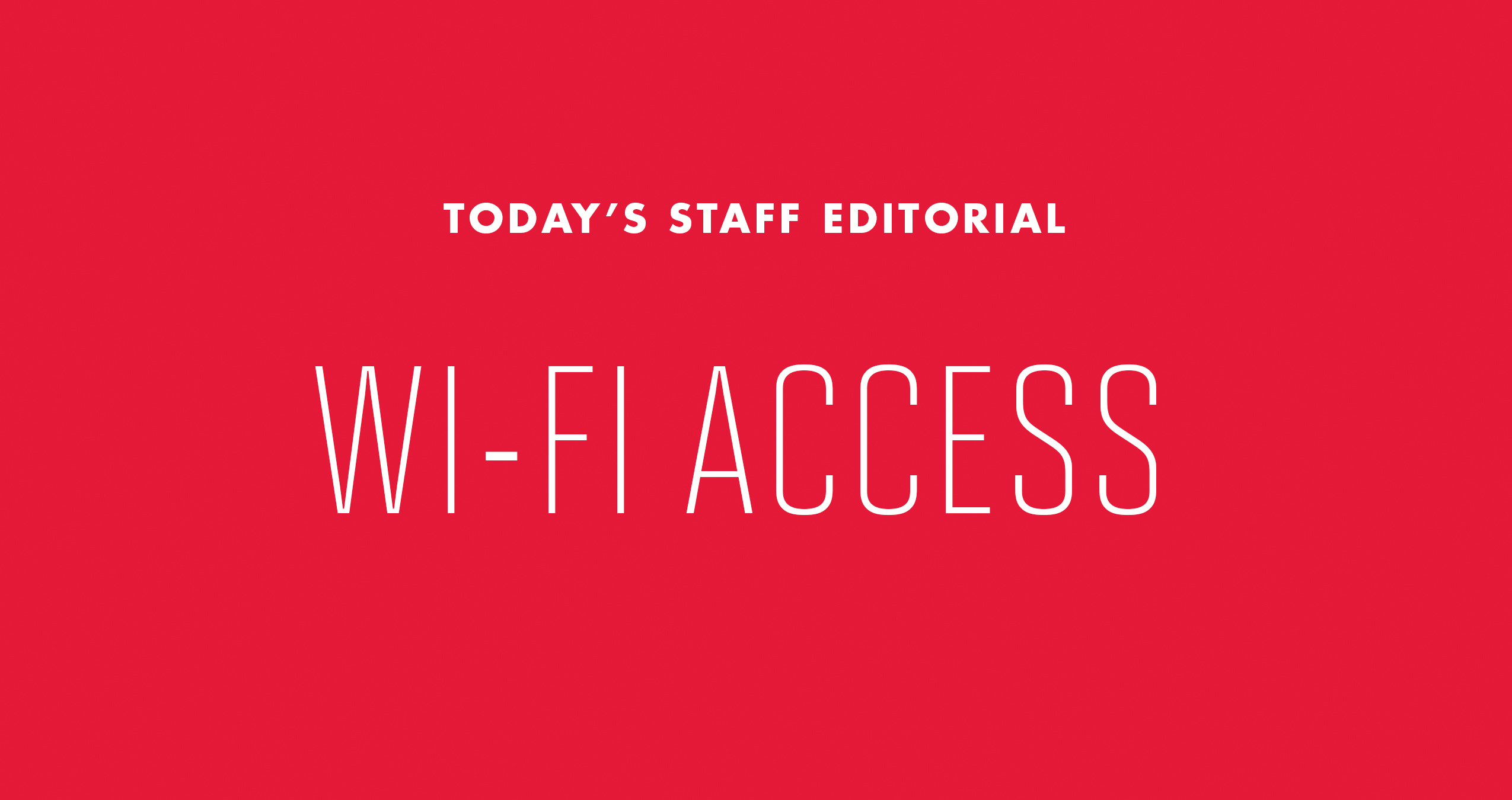Coping with spotty Wi-Fi has become a hallmark of being a University of Maryland student. Yet, even on this campus, few times compare to the frustration students have endured with the wireless network in the last few days. Students have reported consistent inability to connect their phones and laptops to the internet, which has affected many aspects of student life.
Technology has transformed the learning experience. Students can, and often must, access an unprecedented amount of information in a matter of seconds. The internet has ushered in an era in which more and more of our education depends on it. Heavy textbooks — still the norm in many classes — were once printed on hundreds of pages of paper. Now, they’re in online reader format, available for viewing on the publishing company’s website. Homework and quizzes, once done by pencil on paper, are now completed digitally after purchasing an access code. And above all, assignments and papers that were once submitted to a professor in-person may now be submitted through ELMS — which may be considered the lifeblood of many of our courses. With so many classes that require internet access in order to earn a passing grade, it seems almost cruel and unusual that this university’s Wi-Fi would be so unreliable.
Some may have felt the impact more than others. Those who have LTE data plans with a provider that allows hotspot tethering (or with a program that allows it) may have only noticed that they have spent less time on Netflix (or an alternative, illegal streaming service) in the last couple of days, because a few megabytes of data is a small cost to ensure that one’s grade doesn’t suffer.
But for others, the outage was a huge inconvenience. While using the Ethernet connection in dorm and apartment rooms remains an option, few students use laptops with an Ethernet port. Perhaps even fewer own the cables and adapters necessary to use this ancient technology — not to mention the multiple other devices and tablets they want to use to access the internet as well. In a time when Wi-Fi can deliver internet performance comparable to an Ethernet connection-with more mobility too- it has become unreasonable to carry around unnecessary cables. This has left many students rushing into an already crowded McKeldin Library, or another computer lab on campus to complete their assignments.
Perhaps most disappointing of all, only Tuesday night did the Division of Information Technology officially announce the campus community was experiencing a Wi-Fi outage, even though it had been spotty since at least Monday. At a high-tech university such as this one, where almost all students require access to the internet every day, we cannot afford to keep having wireless connection issues like the ones students have been experiencing.



